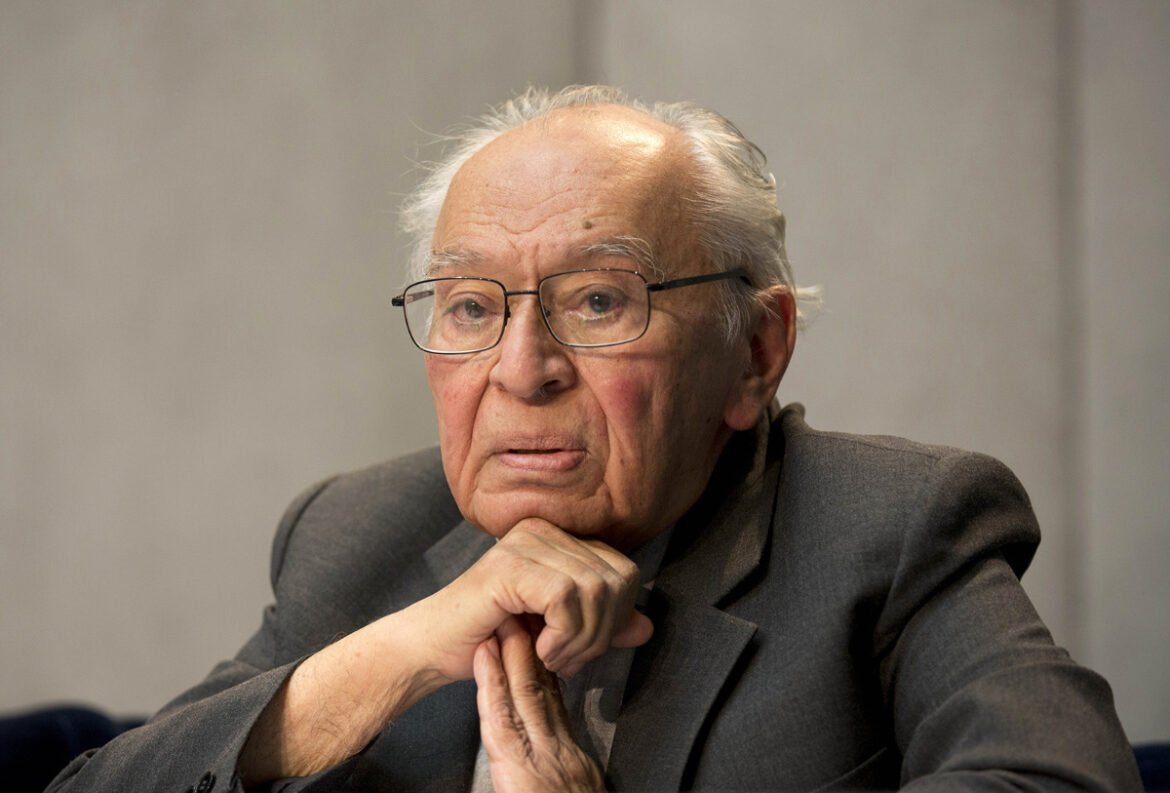The Peruvian liberation theology icon dies at 96, as Father Gustavo Gutiérrez, a renowned theologian and founder of the liberation theology movement, passed away in Lima. Known for advocating the Roman Catholic Church’s active role in addressing poverty and social injustice, Father Gutiérrez leaves behind a profound legacy that sparked both admiration and controversy.
Born in 1928, Father Gutiérrez is most famous for his 1971 book Theology of Liberation, which called for the Church to stand in solidarity with the poor. His radical ideas were both embraced by many in Latin America and criticized by conservative elements within the Church, who accused him of integrating Marxist ideology into his religious teachings.
Father of Liberation Theology
Father Gutiérrez, the Peruvian liberation theology icon, was a Dominican friar and theologian who reshaped the Church’s stance on social justice. His groundbreaking book Theology of Liberation introduced a new perspective, advocating that the Church take an active role in combating poverty and inequality. He viewed the struggles of the poor as central to Christian teachings, arguing that faith must involve social action to create change.
Father Gutiérrez’s work found widespread support among clergy in Latin America but drew sharp criticism from others, including Cardinal Joseph Ratzinger, who later became Pope Benedict XVI. Ratzinger viewed liberation theology as a “fundamental threat to the faith of the Church,” accusing it of incorporating Marxist ideas that could incite rebellion and division.
Despite the backlash, Gutiérrez continued to defend his teachings, maintaining that they were rooted in the Bible and aimed at bringing hope to the marginalized. He believed that liberation theology was not a call for revolution but a means of interpreting Christian teachings through the lens of social justice.
A Life of Advocacy for the Poor
The Peruvian liberation theology icon dies at 96, leaving behind a life dedicated to advocating for the poor. Before becoming a priest, Gutiérrez studied medicine and literature in Peru, as well as philosophy, psychology, and theology in Europe. His time abroad exposed him to the works of Karl Marx, which influenced his perspective on societal structures and poverty, although he rejected being labeled a Marxist.
Upon returning to Peru, Gutiérrez saw a disconnect between the Church and its followers, particularly in impoverished communities. He argued that the Church was often “answering questions that weren’t being asked” and was out of touch with the daily struggles of the poor. Gutiérrez believed that the faithful in poor parishes demonstrated immense hope despite their hardships, teaching valuable lessons to the clergy.
In his writings, Gutiérrez asserted that poverty was not a fate to be accepted but a man-made condition that could be addressed and alleviated. “No one is born to suffer, but to be happy,” he wrote in one of his theological works. This message resonated deeply with those fighting against social injustice across Latin America.
Relationship with the Vatican
The Peruvian liberation theology icon’s teachings caused friction with the Vatican during the 1980s, particularly under Pope John Paul II and Cardinal Ratzinger. However, the election of Pope Francis, a fellow Latin American, led to a thaw in relations. Father Gutiérrez praised Pope Francis for advocating for “a poor Church for the poor,” aligning with his own vision of a Church deeply involved in social justice.
In 2018, on the occasion of Father Gutiérrez’s 90th birthday, Pope Francis sent him a letter expressing gratitude for his contributions to theology and his “preferential love for the poor.” This marked a significant moment of reconciliation between the Vatican and the liberation theology movement, which had been viewed with suspicion for decades.
Legacy and Impact
The Peruvian liberation theology icon dies at 96, leaving behind a legacy that profoundly influenced both the Church and social movements in Latin America. His teachings inspired many priests to engage with revolutionary movements, particularly in Nicaragua, where radical followers of liberation theology supported the Sandinista government. Despite the controversies, Gutiérrez maintained that his message was about peace and hope, not revolution.
Father Gutiérrez combined his theological work with his duties as a priest, officiating weddings, organizing retreats, and connecting with people on a personal level. Parishioners described him as a “humble man with a great capacity to make friends.” He was known for his ability to distill complex theological ideas into simple, relatable messages, appealing to both scholars and everyday people.
One of his parishioners, sociologist Félix Grández, recalled the priest’s ability to inspire through conversations on subjects as varied as chess, cinema, and traditional music. Grández, who first met Father Gutiérrez in 1978, said the priest’s happiness came from “doing good and dedicating himself to the poor.”
A Lasting Influence
As the Peruvian liberation theology icon dies at 96, his influence on the Church and social justice movements remains significant. Father Gutiérrez’s work continues to inspire future generations of theologians and activists who see faith as a tool for advocating change and uplifting marginalized communities.
Father Gutiérrez’s passing marks the end of an era in Latin American theology, but his vision of a just, compassionate Church will live on in the hearts and minds of those committed to fighting for the poor.
Stay connected to know more on arcnews.online for global news like The Peruvian Liberation Theology Icon Dies at 96. For videos updates visit our YouTube. Do subscribe to Arcnews to get latest updates directly in your mail box.
Have A Great Day.


